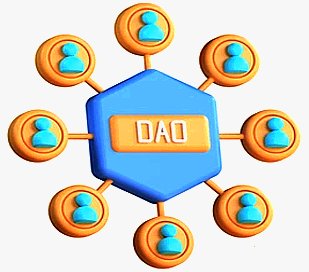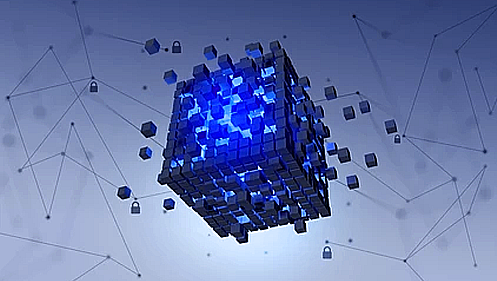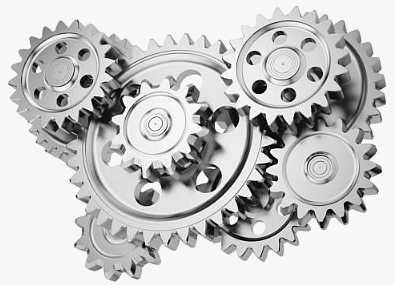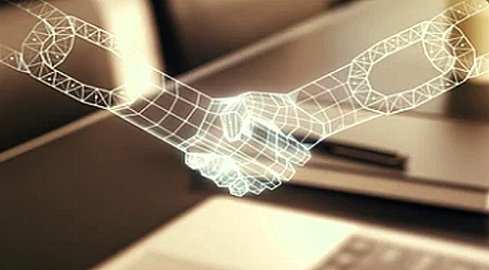Accredited InvestorsAltcoinAnatoli UnitskyAnti-Money Laundering (AML) In CryptoAPIArbitrageArtCoin TokenArticle DirectoryASICAuction Terminology GlossaryBasics of Stock Market InvestingBear MarketBest Crypto Payment Provider In the WorldBitcoinBlockchainBlockchain ConfirmationBlockchain Consensus MechanismBlockchain ForkBlockchain GlossaryBored Ape Yacht ClubBuild a Business That OutperformsBull MarketBuying SkyWay SharesByzantine Fault Tolerance (BFT) ExplainedCasascius CoinCentral Bank Digital Currency (CBDC)Centralized Crypto ExchangeCoinCoinsetCold WalletCollateralCommodity Futures Trading Commission (CFTC)Cross-Chain TechnologyCRUCrypto ExchangeCrypto GlossaryCrypto JokesCrypto Terms to KnowCrypto TickerCryptocurrencyCryptographyCryptojackingCryptounit BlockchainCryptounit GlossaryCryptounit ProgramdApp (Decentralized Application)Dead CoinDecentralized Exchange (DEX)Decentralized Finance (DeFi)Difference Between Bitcoin and EthereumDifferent Ways of Investing MoneyDigital CurrencyDistributed LedgerDo Your Own Research (DYOR)Dollar Cost Averaging (DCA)Dow Jones Industrial Average (DJIA)EncryptionERC-20ERC-721EthereumEvoScentFear Of Missing Out (FOMO)Fear, Uncertainty and Doubt (FUD)Fiat MoneyFNT Fintech CompanyGenesis BlockGlobal Unit PayGlossary of Banking TermsGlossary of Business TermsGlossary of Financial TermsHalvingHODLHot WalletHow Do I Start InvestingHow Rich is Satoshi Nakamoto?How to Create a BlockchainHow to Find Private InvestorsHow to Get Into FintechHow to Program Smart ContractsI Am Thrilled to Be a Part of This Global ProjectInitial Coin Offering (ICO)Initial Public Offering (IPO)Initial Token Offering (ITO)Innovation Basalt TechnologyInnovative Transportation TechnologiesInternational Bank Account Number (IBAN)Investing in Gold Mining StocksInvesting in Gold MiningJagerJoy of Missing Out (JOMO)Know Your Customer (KYC)LedgerLiquidity in CryptocurrencyMaker and Taker Fees in Crypto TradingMarket Capitalization (Market Cap)Meme CoinMetal Credit CardMetaMaskMillenials Now Have Access to Generational WealthMy Best Investment EverNew Digital EvolutionNFT GlossaryOff-Chain TransactionsOn-Chain TransactionsOpen Edition NFTPeer-to-Peer (P2P)Personal Loan GlossaryProbably the Best STO on the MarketProof of Stake (PoS)Real Estate Glossary of TermsReal Estate Investing GlossaryRebase TokenSecurities and Exchange Commission (SEC)Security Token ExchangesSecurity Token Offering (STO)Soulbound Decentralized Identities for Security TokensSoulbound ID Launch by Stobox Proves a SuccessSoulbound TokensStoboxStock Market GlossaryTestimonialsTether Platform and Token (USDT)UnitEx ExchangeUnitsky String TechnologiesUNTBUSDUValidatorWe Started Investing When We Were 25What are Blue Chip NFT?What are Blue Chip Stocks?What are Crypto Assets?What are Crypto Smart Contracts?What are CryptoPunks NFT?What are Digital Assets?What are Digital Collectibles?What are Gas Fees?What are Gas Wars?What are Hashmasks?What are Non Fungible Tokens?What are Non-Sufficient Funds (NSF)?What are Soulbound Tokens (SBT)?What are Stablecoins in Crypto?What are Transactions Per Second (TPS)?What are Utility NFTs?What are Utility Tokens?What Does Burning Crypto Mean?What Does Diamond Hands Mean?What Does Paper Hands Mean?What Does To The Moon Mean?What Does WAGMI Mean?What Happened to Satoshi Nakamoto?What is a 51% Attack?What is a Baby Boomer?What is a Backlink?What is a Banner?What is a Barcode?What is a Bid-Ask Spread in Crypto?What is a Block in Blockchain?What is a Block Reward?What is a Blockchain Address?What is a Blockchain Node?What is a Blockchain Oracle?What is a Blog?What is a Bond?What is a Bot?What is a Broker?What is a Business Accelerator?What is a Cash Cow?What is a Commercial Bank?What is a Commodity?What is a Con?What is a Credit?What is a Credit Limit?What is a Credit Rating?What is a Crypto Airdrop?What is a Crypto Bridge?What is a Crypto Scam?What is a Crypto Token?What is a Crypto Wallet?What is a Crypto Whale?What is a Crypto Winter?What is a Cryptocurrency Public Ledger?What is a Cryptocurrency Roadmap?What is a DAO?What is a Dark Pool?What is a Day Trader?What is a Dead Cat Bounce?What is a Default?What is a Derivative?What is a Digital Credit Card?What is a Fiscal Quarter?What is a Fungible Token?What is a Governance Token?What is a Grace Period?What is a Hard Fork?What is a Hot Wallet?What is a Hybrid Blockchain?What is a Hybrid PoW/PoS?What is a Joint Account?What is a Market Cap?What is a Merkle Tree in Blockchain?What is a Mining Farm?What is a Nonce? What is a PFP NFT?What is a POS System?What is a Prepaid Card?What is a Private Blockchain?What is a Private Key?What is a Public Blockchain?What is a Public Key?What is a Reserve Currency?What is a Ring Signature?What is a Routing Number?What is a Rug Pull in Crypto?What is a Safe Deposit Box?What is a Satoshi?What is a Security Token?What is a Seed Phrase?What is a Shitcoin?What is a Sidechain?What is a Soft Fork?What is a Spot Market?What is a State Bank?What is a SWIFT Code?What is a Tax Identification Number (TIN)?What is a Time Deposit?What is a Transaction Account?What is a Variable Interest Rate?What is a Virtual Assistant (VA)?What is a Virtual Card?What is a Virtual Currency?What is a Visa Card?What is a Whitelist in Crypto?What is a Whitepaper?What is Accounts Payable (AP)?What is AMA in Crypto?What is Amortization?What is an Accrual?What is an ACH Transfer?What is an Actuary?What is an Addendum?What is an Algorithm?What is an Angel Investor?What is an Annuity?What is an Asset?What is an ATM?What is an Atomic Swap?What is an Audit?What is an Avatar?What is an EIN?What is an Embargo?What is an Entrepreneur?What is an IDO (Initial Dex Offering)?What is an Interest Rate?What is an Internet cookie?What is an Investment Bank?What is an NFT Drop?What is an NFT Floor Price?What is an Ommer Block?What is an Orphan Block?What is an Outstanding Check?What is an Overdraft?What is Artificial Intelligence (AI)?What is B2B (Business-to-Business)?What is B2G (Business-to-Government)?What is Bartering?What is Bitcoin Dominance?What is Bitcoin Pizza Day?What is Blockchain Immutability?What is Blockchain Used For?What is BRICS?What is Business-to-Consumer (B2C)?What is C2C (Customer to Customer)?What is Capitalism?What is Catfishing?What is CFD Trading?What is Check Kiting?What is Cloud Mining?What is Communism?What is Content Marketing?What is Decentralization in Blockchain?What is DeFi in Crypto?What is Delisting?What is Depreciation?What is Digital Marketing?What is Diversification?What is Double Spending?What is Dumb Money?What is Dumping?What is Earnings Per Share (EPS)?What is Economics?What is Email Marketing?What is Equity?What is Etherscan?What is Fintech?What is Foreign currency?What is Forex?What is Fundamental Analysis (FA)?What is GameFi?What is Generative Art NFT?What is Gwei?What is Hard Currency?What is Hash Rate?What is Hashing in Blockchain?What is Inflation?What is Initial Game Offering (IGO)?What is Interest?What is Interest Income?What is Mainnet?What is Mastercard?What is Metaverse in Crypto?What is Mining in Cryptocurrency?What is Minting NFT?What is Mobile Banking?What is Money Laundering?What is NFT Alpha?What is NFT Metadata?What is NFT Rarity?What is NGMI Meaning?What is Nominal Interest Rate?What is Online Banking?What is Open-End Credit?What is OpenSea NFT Marketplace?What is Personal Identification Number (PIN)?What is Play-to-Earn?What is Polygon?What is Proof of Authority (PoA)?What is Proof of Work (PoW)?What is Public Key Cryptography?What is Pump and Dump?What is Quantum Computing?What is Refinancing?What is Retail Banking?What is Ripple?What is Sharding?What is Slippage in Crypto?What is Smart Money?What is Solvency?What is Soulbound ID?What is SSL?What is Staking in Cryptocurrency?What is Technical Analysis (TA)?What is Testnet?What is the Ask Price?What is the Better Business Bureau (BBB)?What is the Bid Price?What is the Dark Web?What is the InterPlanetary File System (IPFS)?What is the Gold Standard?What is the Lightning Network?What is the Prime Rate?What is the Sandbox?What is the Secondary Market?What is the World Bank?What is Tier 1 Capital?What is Tokenomics?What is TRC-20?What is Universal Banking?What is Unspent Transaction Output (UTXO)?What is Usury?What is Volatility in Crypto?What is Wash Trading?What is Web3?What is Whisper?What is XRP?What is Zero-Knowledge Proof (ZKP)?Who is Beeple?Who is Satoshi Nakamoto?Who is Vitalik Buterin?Why Tokenization is a Safe HavenWhy You Should Try Your Hand at Trading
What is a DAO?
- Home
- Blockchain Glossary
- What is a DAO?
DAOs are capable of turning the idea of organizing with strangers from different parts of the world into a reality, where rules are established and autonomous decisions are made using blockchain technology. Can you envision it?

What is a DAO?
DAO stands for Decentralized Autonomous Organization.
A Decentralized Autonomous Organization (DAO) is a type of organization that operates autonomously without the need for a central authority or hierarchy. It is based on blockchain technology, which allows for transparent, secure, and tamper-proof transactions.
In a DAO, decisions are made by its members through a consensus mechanism, usually involving voting. Members are not necessarily identified by their personal information, but by their digital identity, which is represented by a cryptographic key.
A DAO is designed to be self-governing, self-funded, and self-executing. This means that the rules and policies of the organization are encoded in smart contracts, which are self-executing programs that automatically enforce the rules and policies without the need for intermediaries or human intervention.
The concept of a DAO was first introduced in 2013 by a group of developers who created "The DAO," a decentralized investment fund. The project raised over $150 million through an Initial Coin Offering (ICO) and became the largest crowdfunded project at the time. However, The DAO was later hacked, resulting in the loss of approximately one-third of its funds.
Despite this setback, the concept of DAOs continued to evolve, and today, there are various types of DAOs that serve different purposes. For example, there are DAOs that focus on funding open-source software development, art projects, or charitable causes.
Benefits of DAOs
There are multiple reasons why a collective group or entity may opt for a DAO structure. Some advantages of this management approach include:
- Decentralization: In a DAO, decisions that impact the organization are made by a group of individuals instead of a central authority, which is usually outnumbered by its peers. Unlike traditional models that rely on the actions of one person or a small group of people, a DAO can distribute authority across a much larger range of users.
- Participation: With a DAO, individuals within an entity may feel more empowered and connected when they have direct voting power on all matters. Although they may not hold a significant amount of voting power, a DAO encourages token holders to cast their votes, burn tokens, or utilize them in ways they feel are best for the entity.
- Transparency: Within a DAO, votes are recorded on the blockchain and are publicly viewable. This requires users to act in ways they believe to be the best, as their decisions and votes will be visible to the public. This incentivizes actions that benefit the voters' reputations while discouraging behavior that is detrimental to the community.
- Community: The concept of a DAO fosters a sense of community, encouraging individuals from all over the world to collaborate towards a common goal. Tokenholders can interact with other owners no matter where they reside, with just an internet connection.
In summary, a DAO structure offers decentralization, greater participation, transparency, and community building, among other benefits. These advantages make it an increasingly popular model for a wide range of organizations seeking a new way to manage their affairs.
Limitations
Regarding DAOS, there are several limitations to the DAO structure that should be noted. Improperly setting up or maintaining a DAO can have severe consequences.
One limitation is speed. With a CEO-led public company, a single vote can decide on a specific action or course of action. In contrast, DAOs require every user to be given an opportunity to vote, leading to a longer voting period due to time zones and differing priorities outside of the DAO.
Another limitation is education. DAOs must educate a larger group of people on entity activity, which can be a challenge due to varying educational backgrounds, understanding of initiatives, incentives, or accessibility to resources. While DAOs bring a diverse set of people together, they must learn to grow, strategize, and communicate as a single unit.
Inefficiency is a third limitation. Due to the need to coordinate many individuals, DAOs run the risk of spending more time discussing change than implementing it. Trivial, administrative tasks can bog down a DAO, leading to inefficiency.
Lastly, security is an issue facing all digital platforms for blockchain resources, including DAOs. DAOs require significant technical expertise to implement, and without it, votes may be cast or decisions made invalidly. Trust can be broken, and users may leave the entity if they can't rely on its structure. Despite the use of multi-sig or cold wallets, DAOs can still be exploited, leading to treasury reserves being stolen and vaults emptied.
The Bottom Line
In conclusion, a DAO is a type of organization that operates autonomously on a blockchain, with decisions made by its members through a consensus mechanism. It has the potential to provide a fair and transparent way for members to participate in decision-making and benefit from the success of the organization, but it also comes with risks and challenges that need to be carefully considered.
Related Articles

Blockchain
The original blockchain prototype was created in the early 1990s by computer scientist Stuart Haber and...

Blockchain Consensus Mechanism
Blockchain consensus mechanisms enforce a set of rules to synchronize members or nodes in decentralized networks, thereby ensuring the...

What are Crypto Smart Contracts?
Hackers took advantage of a flaw in DAO's fundraising smart contract to siphon funds from the initiative.
- Home
- Blockchain Glossary
- What is a DAO?